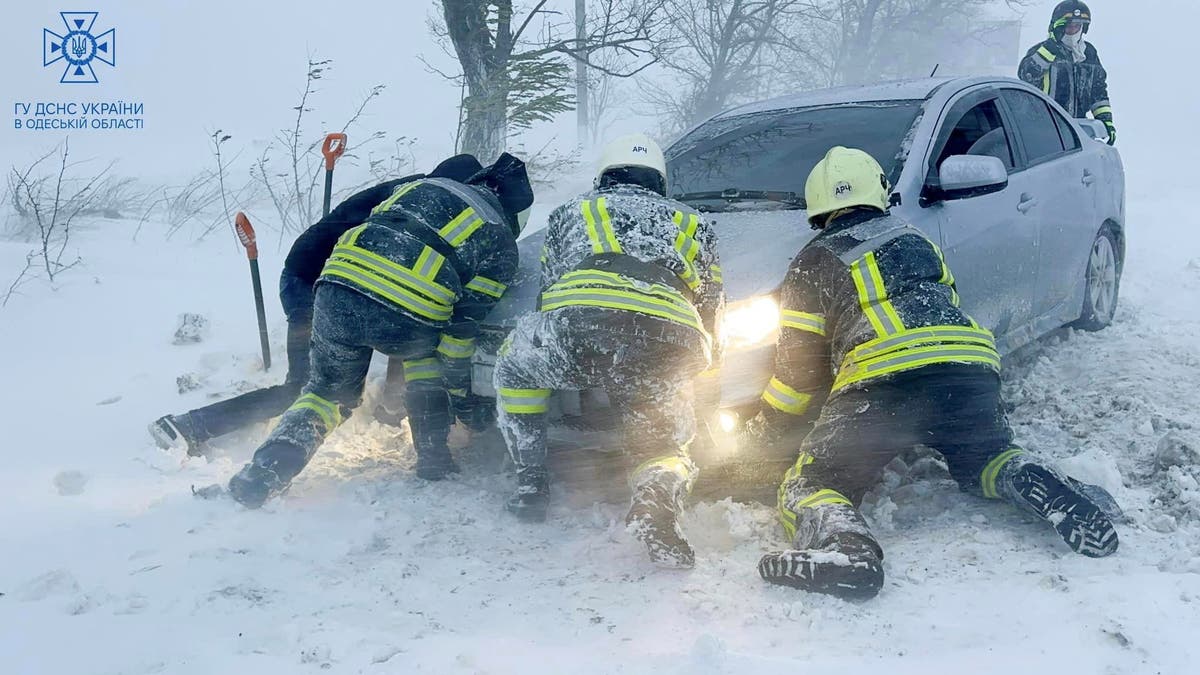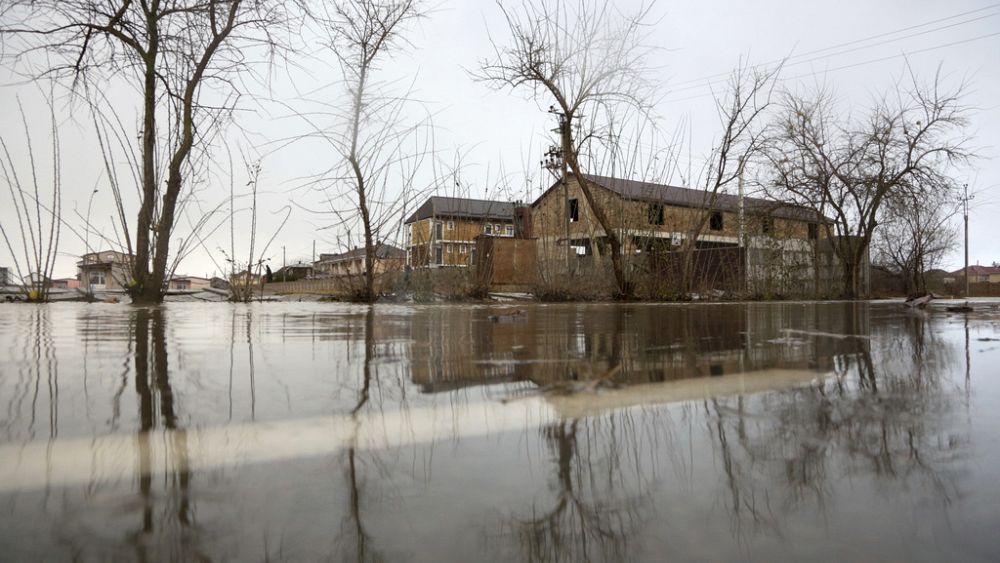Storm batters southern Ukraine, causing havoc for civilians and soldiers
All the hardships that a winter storm typically delivers were compounded and complicated by the exigencies of war. A blizzard of snow, for example, stranded civilians on roads while complicating the movement of humanitarian aid to communities across Ukraine ravaged by fighting.
As temperatures plunged below freezing across much of the country, hundreds of thousands of civilians were left without power in Russian-occupied territories and tens of thousands more lost power across southern Ukraine.
KYIV — A powerful wintry storm battered southern Ukraine on Monday, washing away Russian coastal defenses from some beaches on the occupied Crimean peninsula. The storm, which Ukrainian meteorologists said was among the most intense in decades, snarled supply routes for both countries’ armies and deepened the misery of tens of thousands of soldiers huddled in shallow trenches across the sprawling front lines.
Violent waves stirred by hurricane-force winds threatened to tear maritime mines from their moorings in the Sea of Azov and the Black Sea — as less violent storms have done in the past — complicating the navigation of already dangerous shipping lanes. Russian and Ukrainian officials both reported widespread flooding in coastal communities, and soldiers from both armies posted photos of the havoc the storm created. The storm raged on both sides of the front, with the Odesa region in southern Ukraine along the Black Sea among the hardest-hit areas. Around 150,000 families in the region were without power on Monday, city officials said. Residents living in Crimea posted dozens of videos and photos of destruction up and down the Crimean coast, including along beaches where Russia had carved out miles of trenches and built other fortifications designed to thwart potential Ukrainian amphibious assaults, according to satellite imagery. Even as the defenses were being constructed in the sand, military analysts had warned these would be vulnerable to storm surges that could wash them away. A correspondent from the news organization Radio Liberty posted video of some of the damage as well as flooded Russian positions. It was not possible to verify the extent of the damage to both military and civilian infrastructure on Crimea but local Russian proxy leaders declared a state of emergency. Oleg Kryuchkov, an adviser to the Russian-appointed head of Crimea, said at least one person was killed after being washed away by the waves, and several hundred civilians had to be evacuated from coastal communities. In Moscow, President Vladimir Putin was briefed about the storms, which also caused widespread flooding in southern Russia, but he had no immediate plans to visit the areas, Dmitry Peskov, the Kremlin’s spokesperson, told reporters, according to Interfax, a Russian news agency. More than 1.9 million people were affected by power outages, the Russian energy ministry said. Russian operators were forced to suspend the loading of crude oil on ships at the Novorossiysk terminal because of the storm, operators said in a statement. And Russia’s Maritime and River Transportation agency announced restrictions on navigation in the open sea and on approaches to its main seaports on the Black Sea. More than 400,000 people living in Crimea were left without power, local officials said, and train service along the Black Sea Coast and over the Kerch Strait bridge was disrupted. One sailor died in the strait during the storm, Russian state media reported, but it was not clear if he was a civilian or soldier. The bridge over the strait is the only land link between Russia and the occupied peninsula and it has come under repeated attack by Ukraine. Roughly 30 inches of snow had fallen by 7:30 a.m. in parts of the region, Ukrainian emergency services said. They reported snowdrifts more than 6 feet deep on some roads. Russian authorities on the peninsula said that the peak of the storm had passed by Monday afternoon and floodwaters would begin to recede overnight. The main highway between the port city of Odesa and Kyiv was closed by Ukrainian authorities on Monday, while rescue workers, including some on snowmobiles, raced to rescue people stranded in cars and buses. More than 1,600 people — including 93 children — were evacuated from roads in the Odesa region, Ukrainian emergency services said Monday morning. President Volodymyr Zelensky urged Ukrainians to be cautious and asked the nation to give special thought to the soldiers in bleak fighting positions as they battle to hold the line against relentless Russian assaults. “Now, when it is so difficult, in such conditions, we should all be especially grateful to those who defend our country,” he said.



















